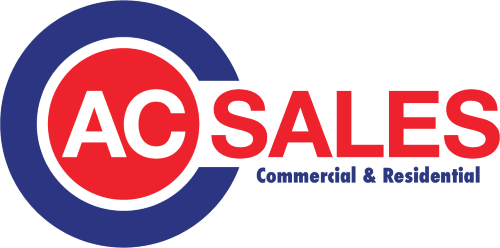
We spend a good majority of our time in our homes. As a matter of fact, the Environmental Protection Agency (EPA) has approximated being within a building comprises 90% of our time. Although, the EPA also has found your indoor air can be three to five times dirtier than outside your home.
That’s because our homes are tightly sealed to increase energy efficiency. While this is fantastic for your heating and cooling expenses, it’s not so great if you’re a part of the 40% of the population with respiratory allergies.
When outdoor ventilation is insufficient, pollutants including dust and volatile organic compounds (VOCs) might get stuck. Consequently, these pollutants might irritate your allergies.
You can enhance your indoor air quality with crisp air and regular dusting and vacuuming. But if you’re still having issues with symptoms while you’re at home, an air purifier might be able to help.
While it can’t get rid of pollutants that have gotten trapped in your couch or flooring, it can help clean the air traveling around your residence.
And air purification has also been scientifically proven to help reduce some allergic symptoms, according to the American College of Allergy, Asthma and Immunology. It can also be helpful if you or a family member has a lung condition, such as emphysema or COPD.
There are two models, a portable air purifier or a whole-home air purifier. We’ll discuss the differences so you can learn what’s appropriate for your residence.
Whole-House Air Purifier vs. Portable Air Purifiers
A portable air purifier is for one room. A whole-house air purifier works with your heating and cooling equipment to clean your complete residence. Some types can work on their own when your HVAC system isn’t operating.
What’s the Best Air Purifier for Allergies?
Seek an option with a High Efficiency Particulate Air (HEPA) filter. HEPA filters are placed in hospitals and deliver the greatest filtration you can find, as they trap 99.97% of particles in the air.
HEPA filters are even more beneficial when installed with an ultraviolet (UV) germicidal light. This mighty mixture can wipe out dust, dander, pollen and mold, all of which are general allergens. For the ultimate in air purification, think over a system that also has a carbon-based filter to reduce household smells.
Avoid getting an air purifier that creates ozone, which is the top component in smog. The EPA advises ozone might irritate respiratory issues, even when released at small amounts.
The Allergy and Asthma Foundation of America has made a list of questions to consider when purchasing an air purifier.
- What can this purifier take out from the air? What doesn’t it take out?
- What’s its clean air delivery rate? (A higher number means air will be cleaned more quickly.)
- How often does the filter or UV bulb need to be changed]? Can I finish that on my own?
- How much do spare filters or bulbs cost?
How to Decrease Seasonal Allergy Symptoms
Want to receive the {top|most excellent|best] results from your new air purification unit? The Mayo Clinic suggests taking other measures to decrease your exposure to seasonal allergy triggers.
- Stay inside and keep windows and doors sealed when pollen counts are high.
- Have someone else mow the lawn or pull weeds, since these jobs can aggravate symptoms. If you have to do these chores alone, consider trying a pollen mask. You should also bathe immediately and change your clothes once you’re done.
- Avoid stringing up laundry outdoors.
- Run air conditioning while at your house or while driving. Consider adding a high efficiency air filter in your home’s heating and cooling unit.
- Balance your home’s humidity saturation with a whole-house dehumidifier.
- Hardwood, tile or linoleum are the ideal flooring kinds for lowering indoor allergens. If your residence has carpet, use a HEPA filter on your vacuum cleaner.
Let Our Professionals Handle Your Indoor Air Quality Requirements
Want to progress with adding a whole-house air purifier? Give our specialists a call at (337) 234-2345 or contact us online to get an appointment. We’ll help you locate the ideal unit for your house and budget.
 Skip to content
Skip to content
